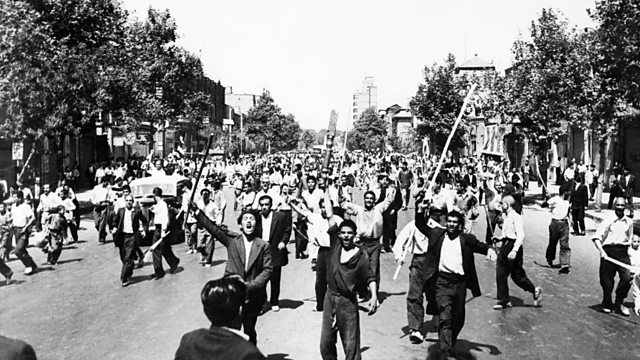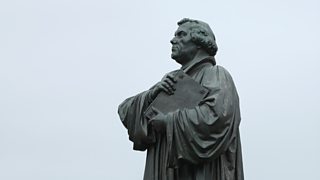The Iranian Coup of 1953: Overthrow of a Prime Minister
How British and US intelligence agencies helped oust Iran’s leader Mohammad Mossadeq.
In 1953 Iran’s democratically elected Prime Minister Mohammad Mossadeq was overthrown in a coup. It was billed as a popular uprising in support of Shah Mohammad Reza Pahlavi, yet behind the scenes were the British and American intelligence services. Mossadeq had swept to power only two years earlier promising to nationalise Iran’s vast oil reserves, but this, along with an apparent Communist threat, worried the two western governments whose post-war economies relied heavily on access to Iranian oil. Rajan Datar discusses the coup with Iran scholar Ervand Abrahamian, professor of modern Iranian history at St Andrews University Ali Ansari and journalist and author Azadeh Moaveni.
(Photo: Rioters armed with staves shout slogans, during riots in Tehran, August 1953. Credit: AFP/Getty Images)
Last on
More episodes
Broadcasts
- Thu 6 Dec 2018 09:06GMTΒι¶ΉΤΌΕΔ World Service
- Fri 7 Dec 2018 00:06GMTΒι¶ΉΤΌΕΔ World Service
- Sat 8 Dec 2018 14:06GMTΒι¶ΉΤΌΕΔ World Service News Internet
- Sun 9 Dec 2018 15:06GMTΒι¶ΉΤΌΕΔ World Service except Americas and the Caribbean, East Asia & South Asia
- Mon 10 Dec 2018 04:06GMTΒι¶ΉΤΌΕΔ World Service except East and Southern Africa, Europe and the Middle East, News Internet & West and Central Africa
Featured in...
![]()
Politics, philosophy and faith—The Forum
Ideas, people and events that shaped cities, nations and civilisations
Podcast
-
![]()
The Forum
The programme that explains the present by exploring the past



